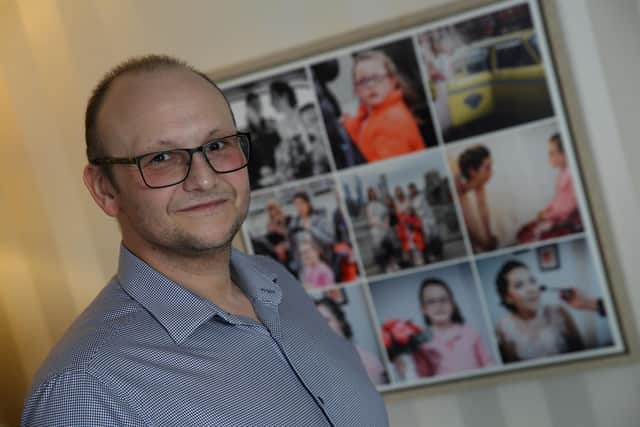'Lifesaving' stroke treatment on offer at the Royal Preston Hospital for the first time at the weekend
and live on Freeview channel 276
The surgery - known as a thrombectomy - is carried out at the Royal Preston Hospital, which treats patients from right across Lancashire and South Cumbria who are deemed to need the op. However, it has previously been available only during weekday daytimes.
The Lancashire Post can reveal that a target set out last year to extend provision of the procedure to the weekend by this autumn has been met - and thrombectomies will now be on offer seven days a week.
Advertisement
Hide AdAdvertisement
Hide AdHowever, in confirming the Saturday and Sunday rollout, the NHS has not restated an additional ambition it previously had for a phased move towards a round-the-clock thrombectomy service by this time next year. The Post has been told only that the next provisional move will be to increase capacity to carry out the operation of an evening sometime during 2024.


The weekend service that is to begin on 30th September will mirror that available during the week - running from 8am until 6pm, with the last patient of the day usually on the operating table by 4pm.
Thrombectomies involve the removal of a blood clot from a large artery in the brain and so are suitable only for strokes caused by such clots - they would not be appropriate for every stroke patient.
The expansion of their availability has come as welcome, if belated, news to Phil Woodford, who missed out on a thrombectomy after he suffered two strokes in 2016 - in spite of the fact that he was actually an inpatient at the Royal Preston at the time of the second one.
Advertisement
Hide AdAdvertisement
Hide Ad“I was really selfish and had my stroke on a Sunday,” Phil told the Post in July last year.
He now says he is “genuinely delighted” that others may be spared the trauma he experienced as a result of the highly time-sensitive surgery not being available when he needed it.
For him, that absence of specialist treatment meant spending four months in hospital learning how to walk again - followed by a further two months in a wheelchair - after the left side of his body was paralysed. Had he received a thrombectomy, he could have had a far less arduous road to a recovery which saw him regain around 90 percent of his pre-stroke capability.
“There are more people now who won’t be living with a lifelong disability [as a result of the thrombectomy expansion] - but there has got to be a greater determination to get this to a 24/7 service,” added Phil, who was first admitted to the Royal Preston with a transient ischaemic attack (TIA), or a so-called ‘mini-stroke’.
Advertisement
Hide AdAdvertisement
Hide AdHe said that it is “shocking” for people in the same position he was seven years ago when they discover the true implications of being denied a thrombectomy .
“You’re told there was some treatment that you couldn't have, but what you’re not told is what it could have meant. It was a realisation for me when I found out for myself [later],” Phil recalls.
Figures presented by NHS bosses to a meeting of Lancashire County Council’s health scrutiny committee in February 2022 estimated that at least £11,000 in combined health and social care costs could be saved for every additional patient who is given a thrombectomy.
The NHS in Lancashire and South Cumbtia is in the final phase of a three-year programme to transform stroke services in the region. It is also aiming to meet a national target to undertake a thrombectomy in 10 percent of all stroke cases.
Advertisement
Hide AdAdvertisement
Hide AdThe Department for Health and Social Care’s Major Conditions Strategy, published over the summer, notes that while NHS England has committed to a 10-fold increase in thrombectomies, the treatment is effective only if provided “within a specific time window”.
To that end, it says, the department has invested in “cutting edge AI [artificial intelligence] to diagnose and determine the best treatment for patients who suffer a stroke”.